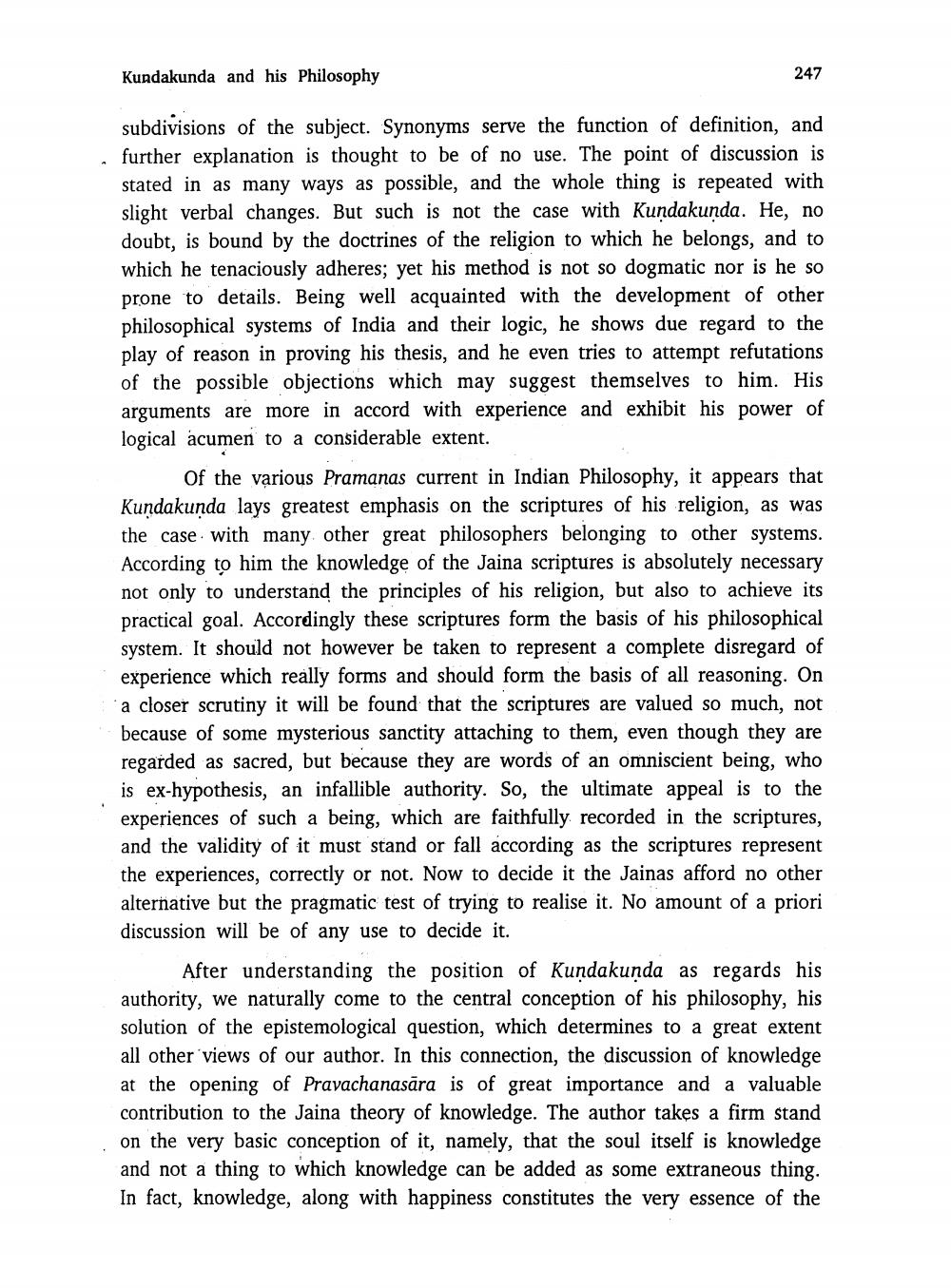________________
Kundakunda and his Philosophy
247
subdivisions of the subject. Synonyms serve the function of definition, and further explanation is thought to be of no use. The point of discussion is stated in as many ways as possible, and the whole thing is repeated with slight verbal changes. But such is not the case with Kundakunda. He, no doubt, is bound by the doctrines of the religion to which he belongs, and to which he tenaciously adheres; yet his method is not so dogmatic nor is he so prone to details. Being well acquainted with the development of other philosophical systems of India and their logic, he shows due regard to the play of reason in proving his thesis, and he even tries to attempt refutations of the possible objections which may suggest themselves to him. His arguments are more in accord with experience and exhibit his power of logical acumen to a considerable extent.
Of the various Pramanas current in Indian Philosophy, it appears that Kundakunda lays greatest emphasis on the scriptures of his religion, as was the case with many other great philosophers belonging to other systems. According to him the knowledge of the Jaina scriptures is absolutely necessary not only to understand the principles of his religion, but also to achieve its practical goal. Accordingly these scriptures form the basis of his philosophical system. It should not however be taken to represent a complete disregard of experience which really forms and should form the basis of all reasoning. On a closer scrutiny it will be found that the scriptures are valued so much, not because of some mysterious sanctity attaching to them, even though they are regarded as sacred, but because they are words of an omniscient being, who is ex-hypothesis, an infallible authority. So, the ultimate appeal is to the experiences of such a being, which are faithfully recorded in the scriptures, and the validity of it must stand or fall according as the scriptures represent the experiences, correctly or not. Now to decide it the Jainas afford no other alternative but the pragmatic test of trying to realise it. No amount of a priori discussion will be of any use to decide it.
After understanding the position of Kundakunda as regards his authority, we naturally come to the central conception of his philosophy, his solution of the epistemological question, which determines to a great extent all other views of our author. In this connection, the discussion of knowledge at the opening of Pravachanasāra is of great importance and a valuable contribution to the Jaina theory of knowledge. The author takes a firm stand on the very basic conception of it, namely, that the soul itself is knowledge and not a thing to which knowledge can be added as some extraneous thing. In fact, knowledge, along with happiness constitutes the very essence of the




